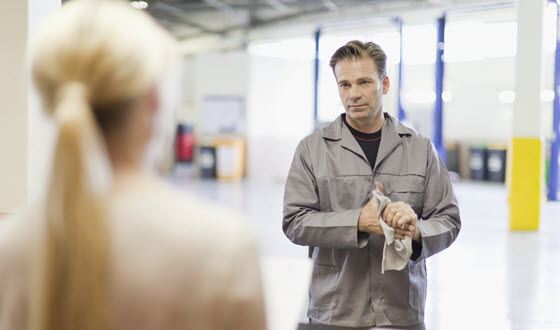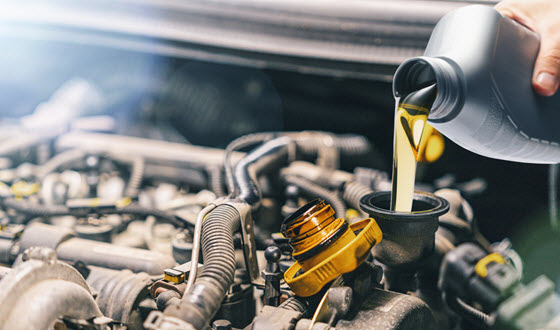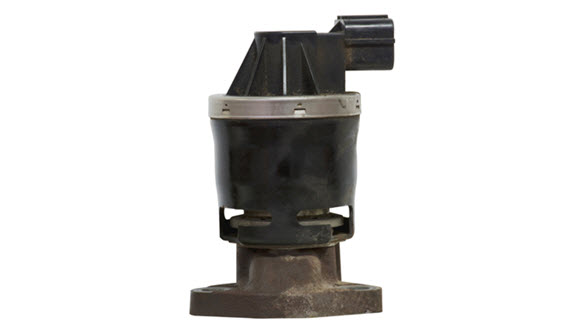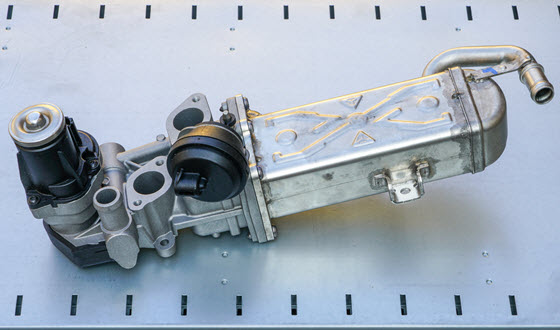Posted on | 3 Apr 2020 By wp_euroautomotive
* The Blog Post is originally written by David Gersh in German Repair Shop Marketing.
Right now, many find themselves at home for long periods of time in quarantine, either self-imposed or mandated. Concerns of the spread of the novel coronavirus have risen and become such a central focus of our lives and thoughts that some things may understandably get overlooked — like the condition of our cars.
In times of crisis such as these, while driving is minimal, having a reliable car is perhaps more essential than ever. Drivers need to know that their car will be able to take them where they need to go in situations of urgency. If you or a loved one experiences a medical emergency, a faulty car could result in a breakdown that could — without wanting to sound too alarmist — prove to be disastrous in the end.
Drivers depend on auto repair shops and the mechanics and staff that work at them. The public has a vested interest in and depends on the work of repair shops to make it through this pandemic without any additional problems that could be avoided. Repair shops are essential businesses, and consumers need them now, perhaps more than ever.
This is said not to create unnecessary worry or panic in this stressful time, but because, in the end, ensuring you have a safe, reliable means of transportation is not only in your best interest. It’s in everyone’s.
A Perfect Storm of Factors
It can be easy to not think about cars at this time, especially if you are one of the millions of Americans that are out of work or working from home. Errands and duties that require a car are scarce for those who do not hold an essential job.
While there is no way to measure how much time Americans are currently spending in their car, auto sales have certainly plummeted. That nosedive is expected to continue in the following months: Eric Lyman, chief industry analyst at car-shopping website TrueCar.com, expects auto sales to dip by 50–60% in April.
As cars sit idle, their batteries begin to lose charge. So, while many of us are practicing social distancing, our batteries may be slowly losing their ability to get started. Sitting for a week or so is fine, but if your car sits for a month, there’s a chance it won’t start when needed.
In addition, tires begin to lose their pressure over time when not driven, as air leaks out of them. When this occurs, you are putting your vehicle at risk for developing other problems.
As the importance of social distancing becomes more realized by the public, some may begin putting off necessary tasks. Social distancing is absolutely crucial to ensuring that COVID-19 is overcome and managed, but if you rely on your vehicle to take you to the hospital if needed and it is not in adequate condition, you should consider getting your car repaired. A trip to an auto shop requires little interpersonal contact, and most mechanic shops are taking the necessary precautions to keep their customers safe.
A reliable car is part of emergency preparedness, and this pandemic is no exception.
A Breakdown May Be More Than An Inconvenience
If you need your vehicle to transport you or a loved one to a doctor’s office, hospital, or testing center in a time of emergency, a breakdown could lose you crucial minutes in care. Engine problems such as overheating or transmission problems could cause your vehicle to stall out. Stalling out is dangerous enough when it comes to the problems it can create in traffic, but in times when a person’s physical health is in jeopardy, an extra level of danger is created.
If your car is stalled, extra time will have to be taken. Whether a loved one, taxi, ambulance or ride-hailing service picks you up from where you are, each minute spent waiting is a minute out of the care of a medical professional. The symptoms of COVID-19 are prone to show up quickly or unexpectedly, so time is of the essence if someone is experiencing an emergency related to the virus.
This will likely hit hardest those who live in rural areas, as they will have to drive a further distance to get to the hospital. As a business whose purpose revolves around vehicles and those who drive them, we want to make sure that drivers are able to properly transport themselves or their loved ones to get the help they need.
Auto shops are needed during this pandemic so that drivers are safeguarded against car problems that a trusted mechanic can help to identify, repair and prevent.
Other Options May Be Unsafe, Not Available
Commuters who own a car but have become accustomed to arriving to work via other means may soon be unable to do so as cities are cutting public transit routes to arrest the spread of COVID-19. Los Angeles, New York City, and Washington D.C., as well as many other cities have reduced the number of trains or buses operating. For those who still have no choice but to use public transportation, there is a significant risk of infection while aboard.
Riding in a car is preferable and poses little to no more threat to yourself or others than sitting in your home — unless you are carpooling, which is currently discouraged. If your car needs servicing in order to run, doing it now is imperative. By repairing your vehicle and driving rather than taking public transportation, you not only reduce your odds of contracting the virus, you eliminate the chance of unknowingly spreading the disease on public transit yourself.
For those who are unable to drive due to financial reasons, declining ridership on public buses and trains will help them better protect themselves by making social distancing easier.
Ride-hailing services like Uber and Lyft have suspended their carpooling service, but typical programs are still available. Those who can drive their own personal vehicle should do so rather than take Uber and Lyft for their own safety, as any and all personal contact should be avoided if possible.
This means that the auto shops drivers depend on to keep their cars running reliably need to remain open, as they provide a critical service the public depends on.
The Strain on Infrastructure
Unfortunately, the number of ambulances and first responders that the world has is limited. Right now, the number of response vehicles needed are not enough in some places. New York City is receiving an extra 250–500 ambulances to help them cover the response to the COVID-19 pandemic, which has at the time of writing hit around 40,000 residents in the city. While New York City is maybe a special case and the situation varies from community to community, the fact remains that emergency infrastructure is under strain.
A properly maintained car can help reduce the amount of pressure placed on our emergency infrastructure in the midst of this virus outbreak. Being able to reliably count on your vehicle and drive to the hospital yourself or with the help of a loved one — except for extreme cases of emergency in which an ambulance is necessary — can save your life by arriving in a timely manner and save the lives of others by freeing up ambulances for those in dire circumstances.
There are other risks of ambulance rides, such as infecting the first responders and EMTs that brave the ride to help others. If it is possible and it would not do harm to yourself, driving yourself is preferable as it reduces the chance of further spreading any contagion by reducing the number of people with whom you come into contact.
Steps to Take
It’s advised to drive your car at least two times a month for at least 10 miles to prevent a substantial loss in battery power. If you only crank your vehicle, you further drain the battery, so it is important to drive it for at least 10 miles to allow it to recharge. This is also a good chance to pay attention to any problems that could exacerbate themselves in an emergency situation.
Check your car’s oil and coolant levels and make sure that you have at least enough gas in the tank to carry yourself to an emergency care facility and back in case of emergency.

A charged battery, an engine that can reliably run without overheating or stalling, and a transmission free of major problems is critical in this time. This virus does not discriminate in who it infects, and every individual should have a plan in place to respond to this crisis, and that includes a well-maintained car. Any questions that you have about your vehicle should be directed to a certified mechanic through the appropriate channels that allow for adequate social distancing measures, such as via telephone or email.
Auto shops provide an essential service in our society and, without them, additional strain would be placed on top of the industries which must respond to this pandemic. If you need work done on your primary vehicle that is indispensable for its operation, please visit an auto shop. It is in your best interest and the best interest of those around you.


















